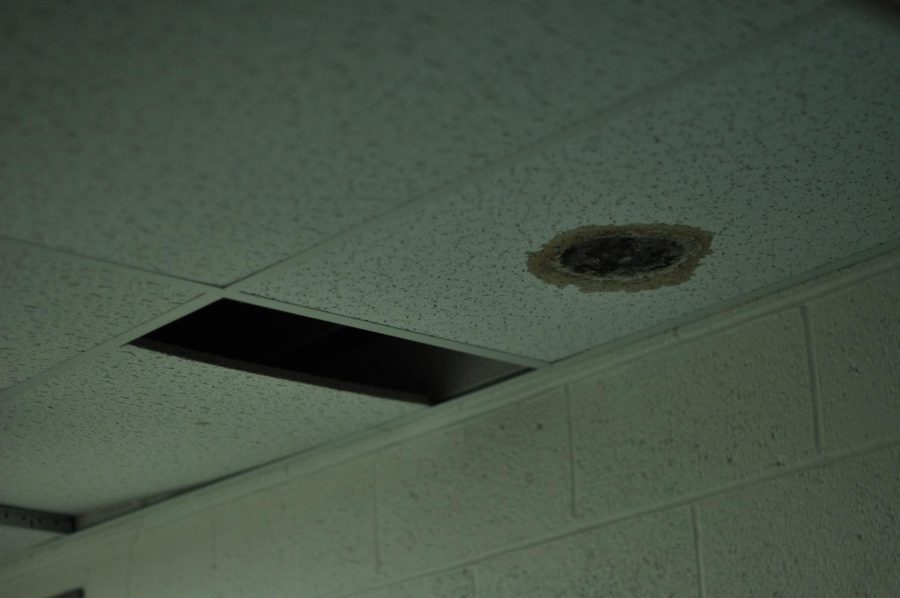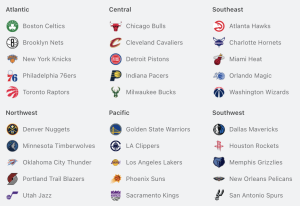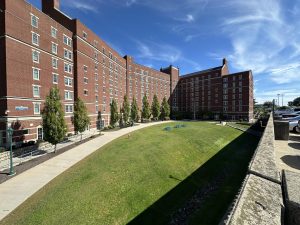Student Center And Event Management Unite For New System
September 10, 2019
When President Dr. Zulma Toro arrived on Central Connecticut’s campus in January 2017, her first mission was to gain feedback from every academic department and support office. Following her listening tour, Toro quickly made the way event management worked as one of her main priorities and wanted to streamline the way event management functioned.
To coordinate an event, people had to go through four different places and organizations: the Student Center, Athletics, the CCSU campus downtown and Event Management. Sometimes, there were others layers added as well, such as Information Technology services or food services, if that was the case.
The various departments or offices were all handling different areas on campus. The Student Center was responsible for events within their building, Memorial Hall and anything being hosted on in the Student Circle. Event Management was responsible for Welte Hall, Torpe Theater and supporting any of the classroom buildings.
“We used to have to submit requests for events or spaces to be booked through CCSU The Link, which would then go to Event Management for approval but would never officially get approved unless you checked on them relentlessly,” Constance Rubitz, the A Cappella Society President said. “Even then, they still wouldn’t confirm them sometimes.”
“In fact, the former president of the A Capella Society had a meeting with President Toro last spring about their accumulating frustrations, which sparked the change in Event Management to Central Reservations Office (CRO) because of ‘how poorly organized the whole process was’,” Rubitz explained.
It was clear for Dr. Toro that the system needed to change in order to be more effective and take advantage of all the facilities the university had.
“Our first goal was to provide a better service to our students and our faculty and staff,” Toro shared. “Our secondary goal was to seek other sources of revenue. Renting our facilities, if they are not used, was a way for us to attract additional funding,” Toro continued.
After some consideration, Toro decided to appoint a task force on events and spent countless hours talking to people to understand how the operation was functioning and identifying the areas for improvement.
The report was submitted on December 2018 and included 35 final recommendations.
“The existence of two separate offices (Event Management and Student Center Operations) each with its primary mission related to events planning, causes confusion among clients, both on- and off-campus,” the report said.
“The Task Force recommends (a) expansion of the scope and charge of the Student Center to include comprehensive campus-wide events planning; and (b) revising the title from ‘Director of the Student Center’ to ‘Director of University Events and Student Center Operation (subsequently referred to as UESCO)’” recommendation five stated.
Once the executive committee and Toro reviewed all the recommendations and decided what to implement, the new system began to come together. However, it was not until this past summer that the plan was implemented.
Now, they are “working towards a one-stop shop process,” Katherine Poirier, Interim Director of the Student Center, said.
Both internal and external clubs, organizations and clients have to only go to the Central Reservations Office, the main office for event planning at the Student Center.
“The shortest distance between two points is straight line,” Poirier said. “We’re really trying to work out that process and partner with a number of different areas and try to make it as easy as possible, as well as try to ease the transition.”
It has been a lot of different people and facilities working together to make this happen and turn it into a positive experience for everybody. Of course, the process is fairly new and still being tested.
“As in any big change like this, I understand that we continue to refine small details and we will continue to learn and improve,” Toro said. “After all, that’s what we want: we want to have the best system we can aspire to have and to support the needs of the institution and also the external community,” she continued.
“Although the new transition is still being worked out, and there are some within it working very hard,” Rubitz said, “The channel of communication between our society and CRO during this new transitional time has been much better than we had previously with Event Management and this, I will admit, is very promising.”




